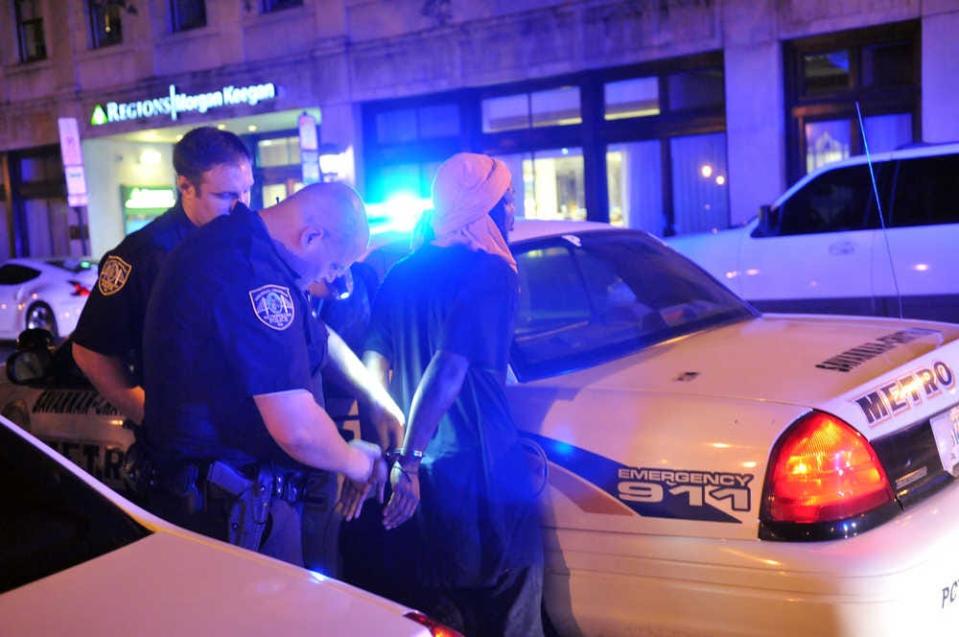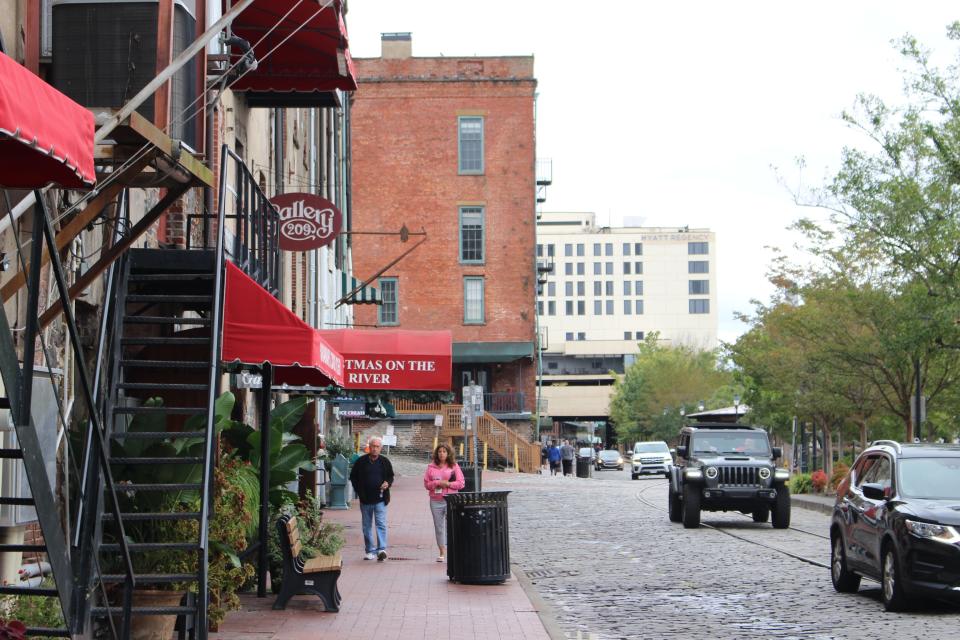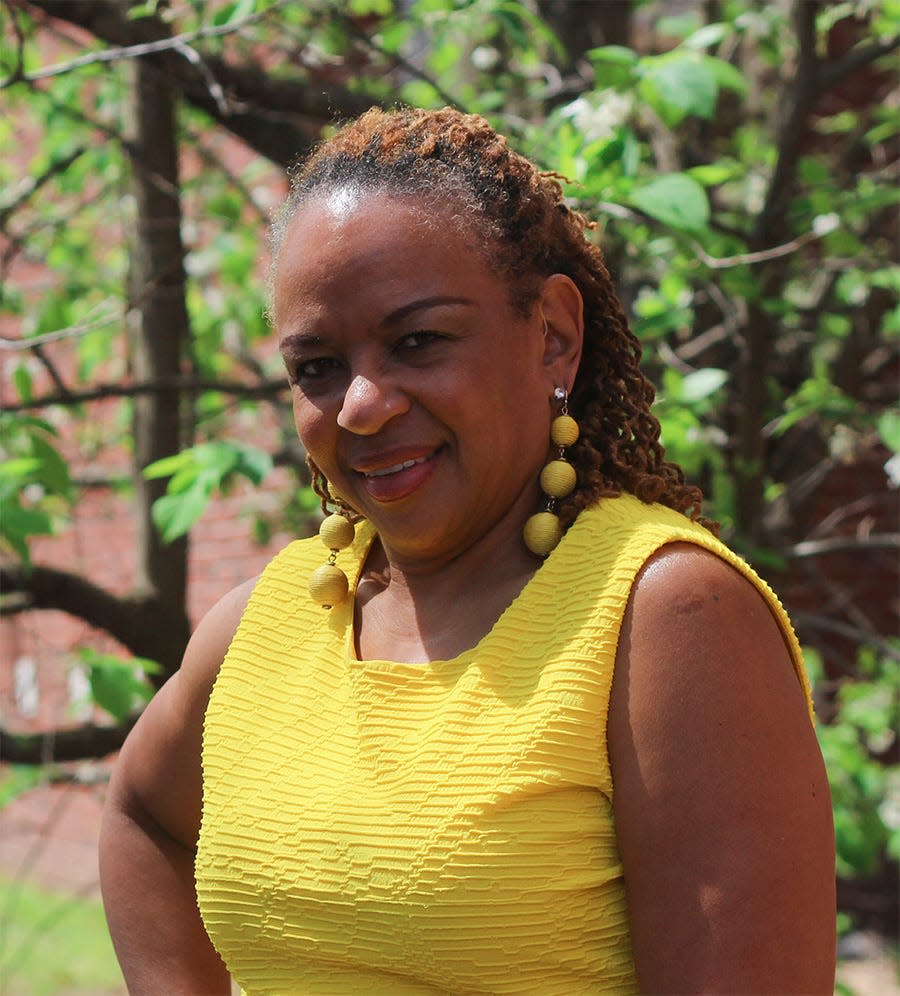In order to create a safer Savannah, the impetus is on us to make the equitable change
This is an column by lifestyle columnist Maxine L. Bryant. She is an assistant professor, Department of Criminal Justice & Criminology; director, Center for Africana Studies, and director, Gullah Geechee Cultural Heritage Center at Georgia Southern University, Armstrong Campus.
According to SafeHome.org Research, on average, violent crime has climbed by 12% in U.S. cities. The same research organization recently noted that the murder rate in small cities (those with population levels between 100,000 and 249,999), climbed by more than 80 percent on average between 2010 and 2020.
Those are national statistics. Statistics for our local area aren’t much different. Based on 2022 statistics from Savannah Police Department compiled by Erin Clarkson, 2022 was a busy crime year in Savannah – 32 homicides, 317 non-domestic aggravated assaults with guns, 51 domestic aggravated assaults with guns, 1,441 thefts from vehicles, and 579 auto thefts.
Statistics such as these along with the rising rates of mass murders in public places instills fear in many people.
Everything must change: It's time to do away with 'plantation' names around Savannah
Maxine L. Bryant: Seeking ’justice for all’ means understanding who we are, starting in Savannah
More from Dr. Bryant: We need to stop 'polaroiding' our Black youth with records. Let's give them a path to dream
In fact, I have heard Savannah natives and people who moved here from other cities talk about being fearful to visit downtown Savannah because of the crime. But, it hasn’t always been that way. Many persons who were born here recall peaceful and joyful times in downtown Savannah during a period of time couched between the end of the Jim Crow Era and the Era of Mass Incarceration.

Crimes of Savannah Past
As we proceed through February, which is Black History Month, I decided to “walk down memory lane” with a few life-long Savannah residents and record their memories of a downtown Savannah that one interviewee described as resembling Mayberry in the 1960s "Andy Griffith Show." I chose to focus on downtown because that area has long been a challenge in terms of keeping it a safe place.
Sharon Aiken recalled River Street during the late 1950s and '60s. She lived in Yamacraw and remembered River Street as the playground for her and 10-15 of her friends. They rode their bikes, skated, and played on the backside of City Hall. It was fun times and according to Aiken, “life was beautiful."
Back then there were no shops on River Street — just warehouses.
Savannah's got talent! Annual TEDx Savannah displays wealth of knowledge flowing in Hostess City
Almost a decade later, walking to River Street from Forsyth Park was one of many pleasant memories for Brett Campbell. Campbell and his friends would play basketball in Forsyth Park and then walk down to River Street to look at the ships and hang out. Like Aiken and her friends, they considered River Street a safe hangout place, particularly on Sundays. They felt very safe there – no one bothered them and they didn’t bother anyone else.
Leathia Moore and her friends walked from Hitch Village to River Street to hang out and her memories mirror those of Sharon and Brett. Sliding down the big hill in the back of Savannah Electric Company on cardboard boxes was a favorite memory for her. She recalled the dance clubs that were open on weekends and laughed as she recalled the Blue Laws which prohibited the sale of alcohol on Sundays. Life was peaceful and fun, as she recalls, and community was everything.

One thing they all remembered was Captain Sam’s boat ride to Daufuskie Island. That was a Sunday afternoon highlight for many Black families during that era. Aikens recalled her family packing a picnic basket to take as they hung out on their weekend family trip to Daufauskie. Campbell agreed and spoke fondly of those boat rides and considered them to be the highlight of his summers. Eating crabs, drinking beer and dancing were Moore’s memories about the excursions.
Civic and social clubs would sponsor the rides for families who couldn’t afford to pay their way. That way, no family would have to be left out of the experience.
Black youth are thriving in Savannah: Here are 8 young people leading the way.
Back then, River Street was a ”kid safe” area in a segregated Savannah. Most times parents didn’t know exactly where their kids were; however, they didn’t have to worry about harm coming to them. Moore put it this way, "life was in the community" and everyone looked out for everyone else.
Things are much different now. The 100 Black Men of Savannah presented a play at the Savannah Cultural Center on Feb. 3 and 4 called Devine Intervention. The play’s plot was about the journey of a widowed father and his son as they coped with the death of their wife/mother. The son’s coping mechanism included joining a gang.
At the conclusion of the play, local actor Tim Lee, who played the father, spoke to the audience and reminisced about times when streets were safe and children could play outside without fear. Indeed, times are different now.
What can WE do?
Here's the question – Savannah is our community. What can WE do to restore it to a safe place for children? Each person has a role to play in that task. What can you do? What can I do? What can we do? Our call to action this month is to identify an action item to do.
The fifth principle of Kwanzaa is Nia, which means purpose. The focus is on working together to “restore our people to their traditional greatness”. Our community needs restoration. The process to restoration begins with education — with knowing. What should we know?
We need to know who we are — individually and collectively. We need to know accurate, true history so we can learn and avoid the mistakes of the past. We need to know strategy, so we can strategically outsmart the enemy. We need to know who the enemy is. “We have become our own enemy; no longer can we say we are family!"
Maxine Bryant: Savannah is filled with important Black history that is hidden from plain sight
Those words are from a poem I wrote over 15 years ago — it is still true today. We have become a society of “them vs. us” – Whites vs. Blacks; law enforcement vs. community; liberals vs. conservatives; heterosexuals vs. the LGBTQI+ community; rich vs. poor; scholars vs. laypersons… and the list goes on. I continuously quote Rodney King from his 1992 television appearance, “Can we all get along?"
The traditionally oppressed cannot continue to take on the attributes of the oppressors if our communities are to thrive. The powerful cannot continue to push down the powerless if our communities are to thrive. Academics cannot continue to neglect and dilute parts of our history while lifting up other parts if our communities are to thrive.
Addressing existing disparities is one way to begin to restore our community and create a safe place. Dollars are poured into some neighborhoods and youth have places to play and walk, and exercise and fresh food is available at nearby grocery stores. Dollars are sorely missing in other neighborhoods where sidewalks are lacking, community centers are closed, the only exercise is playing basketball on a concrete court and the community is in the middle of a food desert.
Creating equity across all spectrums is one way to restore our City to a safe place, particularly downtown.

Things may never go back to the way they were; however, we can utilize our present day individual and collective strength to forge ahead and create a better, safer future.
Maxine L. Bryant, Ph.D., is a contributing lifestyles columnist. She is an assistant professor, Department of Criminal Justice & Criminology; director, Center for Africana Studies, and director, Gullah Geechee Cultural Heritage Center at Georgia Southern University, Armstrong Campus. Contact her at 912-344-3602 or email dr.maxinebryant@gmail.com.
This article originally appeared on Savannah Morning News: Maxine Bryant: We must be the change for a safer, better Savannah GA

